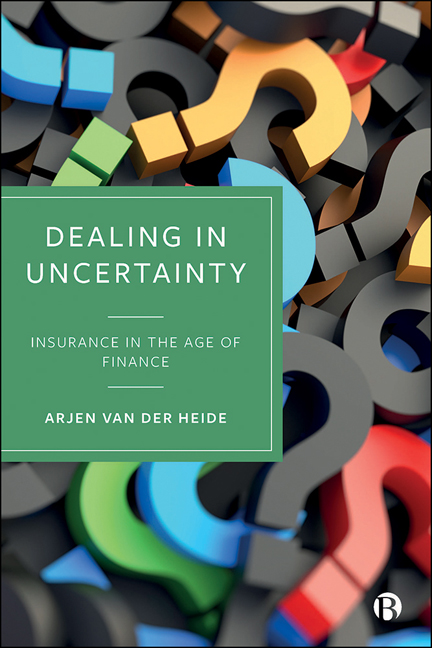Book contents
- Frontmatter
- Contents
- List of Figures
- Acknowledgements
- 1 Life Insurance in the Age of Finance
- 2 Financialization, Quantification and Evaluation
- 3 Shifting Boundaries between Insurance and Finance
- 4 Actuaries Going on a Random Walk
- 5 ‘Authors of Their Own Misfortune’
- 6 ‘Taking Account of What the Market Has to Say’
- 7 Managing Risk in Insurance
- 8 The Long Road to Solvency II (and Back Again?)
- 9 De-Risking Pensions, Managing Assets
- 10 Financial Evaluation and the Future of Insurance Society
- Notes
- References
- Index
5 - ‘Authors of Their Own Misfortune’
Published online by Cambridge University Press: 20 January 2024
- Frontmatter
- Contents
- List of Figures
- Acknowledgements
- 1 Life Insurance in the Age of Finance
- 2 Financialization, Quantification and Evaluation
- 3 Shifting Boundaries between Insurance and Finance
- 4 Actuaries Going on a Random Walk
- 5 ‘Authors of Their Own Misfortune’
- 6 ‘Taking Account of What the Market Has to Say’
- 7 Managing Risk in Insurance
- 8 The Long Road to Solvency II (and Back Again?)
- 9 De-Risking Pensions, Managing Assets
- 10 Financial Evaluation and the Future of Insurance Society
- Notes
- References
- Index
Summary
In an article published in The Independent on 18 December, 2000 David Hyman lamented the collapse of Equitable Life Assurance Society (or Equitable in short). Hyman is a retired stockbroker who had taken out several pension policies with Equitable. He told the reporter that:
Equitable was a wonderful company with a cast-iron reputation. It has blown it through total incompetence (and) blown 238 years of history through one silly decision … The actuaries behaved stupidly and almost criminally. They did not believe it could happen. They should have cut bonuses and set aside provisions. But they wanted to be top of the table. (Hyman in Garfield, 2000)
Hyman’s policies included attractive ‘guaranteed annuity options’ (GAOs). Hyman, in other words, could convert the benefits of his policies into a pension annuity – a contract that provides its policyholder with an income until death – at a predetermined rate of conversion. At the time Hyman had bought his policies, the guaranteed annuity rate was not very attractive. The annuity rates available in the market far exceeded those guaranteed by Equitable. During the 1980s and ’90s, however, changing financial market conditions had depressed market annuity rates, to the extent that Equitable’s guarantees had now started to ‘bite’. Facing financial trouble, Equitable decided to lower the benefits of policyholders with GAOs, like Hyman. Hyman, who became representative of other policyholders too, took the case to court, accusing Equitable of unduly discriminating between different groups of policyholders. After several legal battles, the House of Lords ruled in his favour, precipitating the company’s demise. The company’s shortfall was later estimated at £4.1bn (HM Treasury, 2016). Hyman told a reporter that it was ‘unfortunate for the non-guaranteed annuity rate members, but the fact is that we were made promises. It is not our fault that the company did not take account of the possible shortfall’ (Hyman in Garfield, 2000).
Equitable’s downfall brings together many of the themes of the previous chapters. For instance, Equitable sold policies that combined elements from unit-linked insurance with features of the more traditional ‘with-profits’ style of life insurance. The issue of guarantees, moreover, again highlighted the question of financial risk and the adequacy of financial reserves.
- Type
- Chapter
- Information
- Dealing in UncertaintyInsurance in the Age of Finance, pp. 74 - 90Publisher: Bristol University PressPrint publication year: 2023



